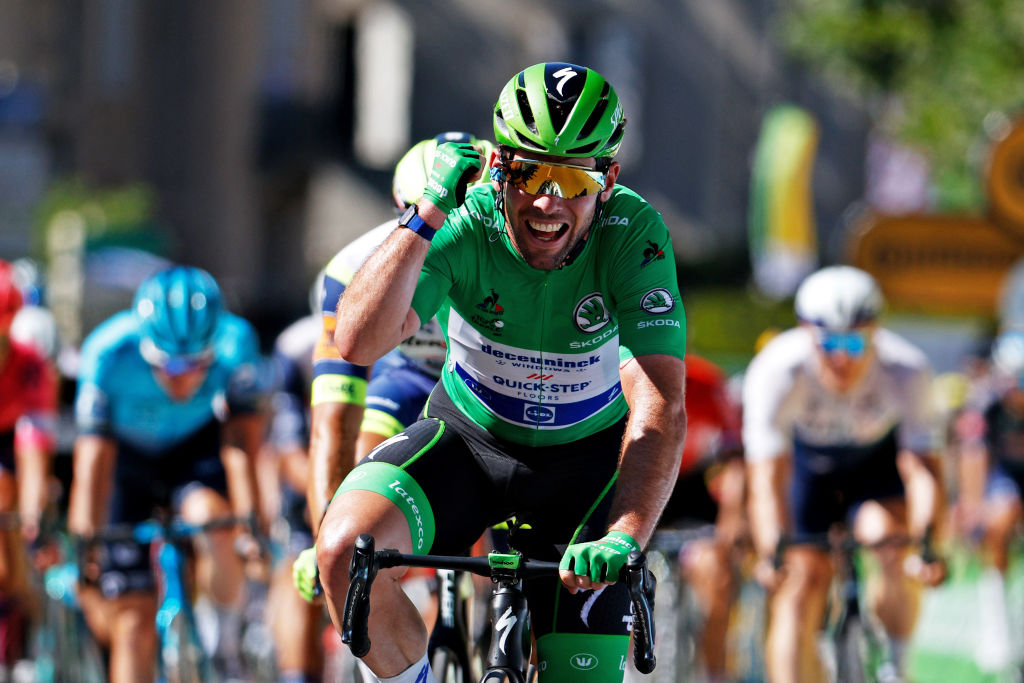Mark Cavendish: it was either Patrick Lefevere and Deceuninck-QuickStep or I stopped racing
British sprinter on how Rod Ellingworth lost faith and another team boss he ‘despised’

Mark Cavendish has revealed that he would have retired from professional cycling at the end of 2020 had he not secured a one-year deal with Deceuninck-QuickStep. In an excerpt from Cavendish’s latest autobiography, published in The Times this weekend, he also talks about Rod Ellingworth and how his former team boss had stopped believing in him after a disappointing 2020.
The sprinter also hints at the poor relationship he had with Doug Ryder by stating that: “A 2017 season wiped out by Epstein-Barr virus, the realization in 2018 that I’d never been given time to recover, a team manager I despised, clinical depression — a straight-from-the-cookbook, easy-to-follow recipe for total disintegration.”
Cavendish’s road career was on the brink at the end of 2020 when he was told by Ellingworth that Bahrain McLaren would not be renewing his contract. Ellingworth had previously been one of the only WorldTour bosses at the top of the sport willing to offer Cavendish another chance after the sprinter had endured three poor years due to health issues and a resulting lack of form. Ellingworth had bought into the idea of rescuing Cavendish’s career in the hope that he would return to his best in 2020.
However with no wins under his belt all year and with younger sprinters dominating the scene, it looked as though Cavendish’s time in the sport seemed over. Yet, a tearful interview post-Gent-Wevelgem – a race many suspected could be his last – prompted several teams to reach out to the sprinter directly. However, in his book, Tour de Force: My history-making Tour de France, the veteran insists that he only had eyes for one team – Patrick Lefevere’s Deceuninck-QuickStep.
“To each I replied with a variation on the same message: I really appreciated them wanting me, but I needed to speak to Patrick. In fact, I realised, whatever soul-searching had taken place over the previous few hours had brought me to a stark conclusion: it was either Patrick and Deceuninck-QuickStep or I stopped racing,” Cavendish wrote.
The pair, who had worked together between 2013 and 2015, subsequently met in Belgium at the team’s headquarters but when Lefevere said he had no budget left – not even enough to pay Cavendish cycling’s minimum wage – the rider needed to find an outside sponsor to essentially pay his way onto the team.
“Pay me minimum wage,” I blurted, without letting him finish. “It’s not about the money, because that’ll come when I win for you.”
Get The Leadout Newsletter
The latest race content, interviews, features, reviews and expert buying guides, direct to your inbox!
Patrick smiled apologetically. “Mark, I have one spot in the team . . . but no money. Not even to pay the minimum wage.”
Cavendish went on to have a hugely successful year with the team, winning several stages of the Tour de France and equalling Eddy Merckx’s record of 34 career stage wins. After taking a first win at the Tour since 2016 he uses his book to explain some of the emotions that he went through and what his comeback meant in terms of securing his legacy.
“I can’t claim to have been in a worse position than lots of other people in the last few years, especially since Covid hit. Sports people can get so consumed in our little bubbles that we become selfish. We’ve been lucky because we’ve been able to continue with our lives while so many other people have been dealing with immense turmoil. However, I’ve been through real hell in recent years. People who were always there for me disappeared. Even Rod, the guy who was my confidant for 20 years, stopped believing in me.”
“But thankfully there were people who were always there, none more so than my wife. Peta’s a really strong personality, hugely supportive, and she always believed, much more than me sometimes. Peta pushed me on as I battled with illness, misdiagnosis, injuries, depression, loss of form. I know it might sound like bravado, but I honestly feel that if I can come back from setbacks like I’ve had, anyone can.
Securing my legacy was the primary reason that I carried on racing this year. I knew I still had it in me, just as I knew that every year I kept racing and didn’t win was damaging that legacy.”
Tour de Force: My history-making Tour de France by Mark Cavendish is out next week and can be pre-ordered now.
Cyclingnews is the world's leader in English-language coverage of professional cycling. Started in 1995 by University of Newcastle professor Bill Mitchell, the site was one of the first to provide breaking news and results over the internet in English. The site was purchased by Knapp Communications in 1999, and owner Gerard Knapp built it into the definitive voice of pro cycling. Since then, major publishing house Future PLC has owned the site and expanded it to include top features, news, results, photos and tech reporting. The site continues to be the most comprehensive and authoritative English voice in professional cycling.